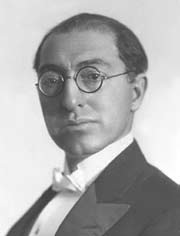Tevfik Rüştü Aras
This article needs additional citations for verification. (September 2010) |
Dr. Tevfik Rüştü Aras | |
|---|---|
 Dr. Tevfik Rüştü Aras | |
| Ambassador of Turkey to the United Kingdom | |
| In office 1939–1943 | |
| President | İsmet İnönü |
| Preceded by | Ali Fethi Okyar |
| Succeeded by | Rauf Orbay |
| Minister of Foreign Affairs | |
| In office March 4, 1925 – November 11, 1938 | |
| Prime Minister | İsmet İnönü, Celal Bayar |
| Preceded by | Şükrü Kaya |
| Succeeded by | Şükrü Saracoğlu |
| Personal details | |
| Born | Tevfik Rüştü 1883 Çanakkale, Ottoman Empire |
| Died | 5 January 1972 (aged 84–85) İstanbul, Turkey |
| Resting place | Aşiyan Asri Cemetery |
| Political party | Republican People's Party (CHP) |
| Alma mater | Beirut School of Medicine |
| Profession | Physician, politician |
Tevfik Rüştü Aras (1883 in Çanakkale – January 5, 1972 in Istanbul) was a Turkish politician, serving as deputy and foreign minister of Turkey during the Atatürk era (1920-1939).
Early years
He graduated from the medical school of Beirut. He served as a doctor in Izmir, Istanbul, and Thessaloniki (Turkish: Selanik ). He became a member of the Committee of Union and Progress, and during his membership he met Mustafa Kemal Atatürk, the founder of the Republic of Turkey.
In 1918, he was a member of the high commission of health (Turkish: Yüksek Sağlık Kurulu). At that time he married the journalist Evliyazade Makbule, who was the daughter of a wealthy family from Izmır.
Political career
The Turkish Grand National Assembly (TGNA) opened in 1920. Aras was elected to the parliament from Muğla. In his first period as a Member of Parliament (MP), he was appointed to the Independence Court of Kastamonu. In the autumn of 1920, he became one of the founders of the Communist Party of Turkey. Tevfik Rustu visited the Russian Soviet Federative Socialist Republic with Ali Fuat Cebesoy, when Mr. Cebesoy was appointed as ambassador to Moscow. He served as MP for Izmir in the second, third, fourth and fifth periods of TGNA, between 1923 and 1939.
When the Law on the Maintenance of Order was effected on March 4, 1925, he was the Minister of Foreign Affairs in the third İsmet İnönü government. He stayed in office by keeping his position in all the cabinets until Atatürk died. He implemented Atatürk's foreign policy, held good relations with neighbouring countries and opposition to hegemonic powers. He visited Russia three times at the invitation of Maxim Litvinov, the Foreign Minister of Russia. These visits took place in 1926 (Odessa), and in 1936 and 1937 (Moscow).
Aras was elected as the president of League of Nations during the Special Session of the Assembly Convened for the Purpose of Considering the Request of the Kingdom of Egypt for Admission to the League of Nations in Geneva, on May 26–May 27, 1937.[1] He was appointed as ambassador to the United Kingdom in 1939 and stayed in London for three and a half years. He retired in 1943 and published some stories in the Istanbul press (especially in the newspaper Tan). He supported the establishment of the Democratic Party. He took office as chairman of the board of Turkiye Is Bankasi, a Turkish Bank.
The speeches he gave during his ministerial period were collected in a book called "10 Years in Pursuit of Lausanne" (Turkish: Lozan'ın izlerinde 10 yıl) by Mr. Numan Menemencioglu in 1937. He also collected his stories (published in the daily press between 1945–63) into a book called My Views (Turkish: Görüşlerim). [2]
He died in on January 5, 1972 in İstanbul, and was laid to rest at the Aşiyan Asri Cemetery.
Role in the Armenian Genocide
Tevfik Rüştü Aras was the brother-in-law of Nazim Bey, one of the chief organizers of the Armenian genocide. Tevfik Rüştü Aras became Inspector-General of Health Services and was given the task to destroy the bodies of Armenian victims of the genocide.[3] He organized the disposal of Armenian corpses with thousands of kilos of lime over six months.[4] The bodies were dumped into wells which were then filled with lime and sealed with soil.[3] Tevfik Rüştü Aras was given six months to complete the task, after which he returned to Istanbul.[5] H.W. Glockner, a British POW, wrote in his memoirs that he had seen the bodies of murdered Armenians in Urfa thrown into large ditches and covered with lime, just as Tevfik Rüştü Aras has been instructed to do.[6]
References
- ^ "His Presidency session". Indiana University. Retrieved 2008-12-17.
- ^ "kimkimdir". Kim Kimdir ( Turkish ). Retrieved 2008-12-17.
- ^ a b Akcam, Taner (2007). A shameful act : the Armenian genocide and the question of Turkish responsibility (1st Holt pbk. ed.). New York, NY: Metropolitan Books/Holt. p. 363. ISBN 9780805086652.
- ^ Baron, Jeremy Hugh. "Genocidal Doctors". Journal of the Royal Society of Medicine. November 1999, 92, pp. 590–93.
- ^ Archive of the Armenian Partiarchate of Jerusalem, Box 21, File M, Document no. 249
- ^ H.W. Glockner, Interned in Turkey 1914-1918 (Beirut, 1969), pg. 47
- 1883 births
- Sabbateans
- Turkish physicians
- Ministers of Foreign Affairs of Turkey
- Turkish diplomats
- Turkish chief executives
- Turkish columnists
- 1972 deaths
- Ambassadors of Turkey to the United Kingdom
- Committee of Union and Progress politicians
- Communist Party of Turkey (historical) politicians
- People from Çanakkale Province
- Burials at Aşiyan Asri Cemetery
- People from Çanakkale
- Deputies of Izmir
- Armenian Genocide perpetrators
- Members of the 4th government of Turkey
- Members of the 5th government of Turkey
- Members of the 6th government of Turkey
- Members of the 9th government of Turkey

